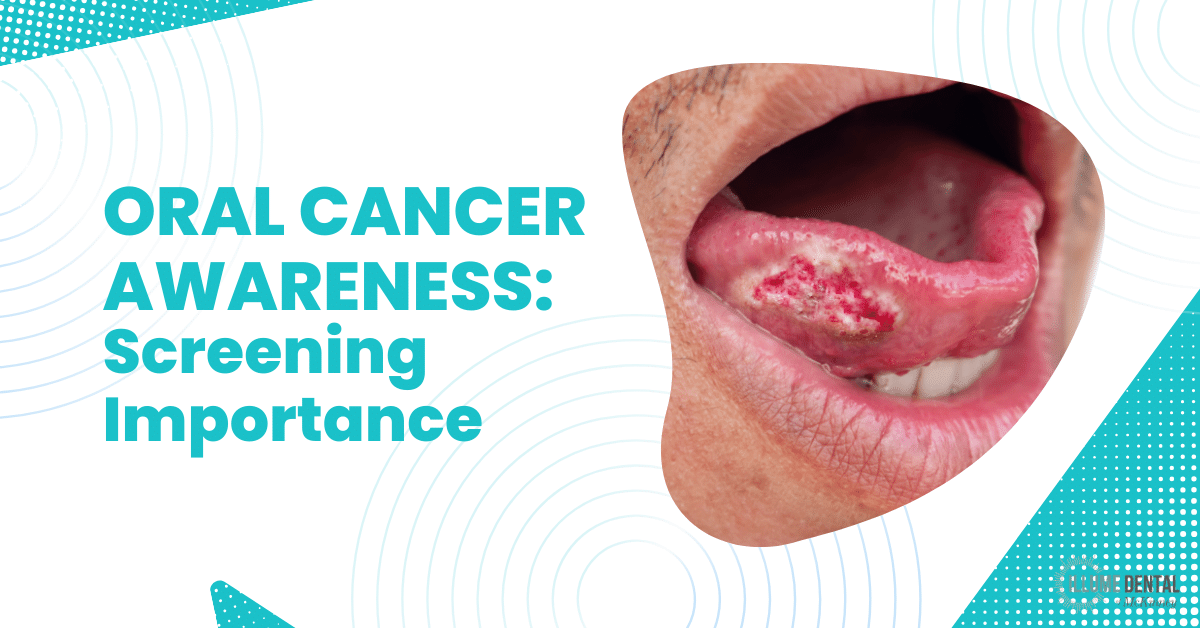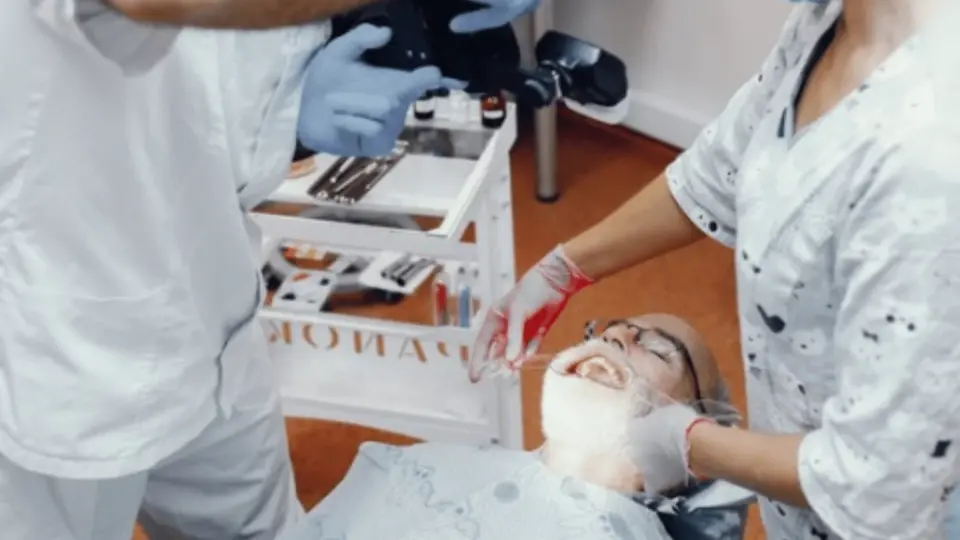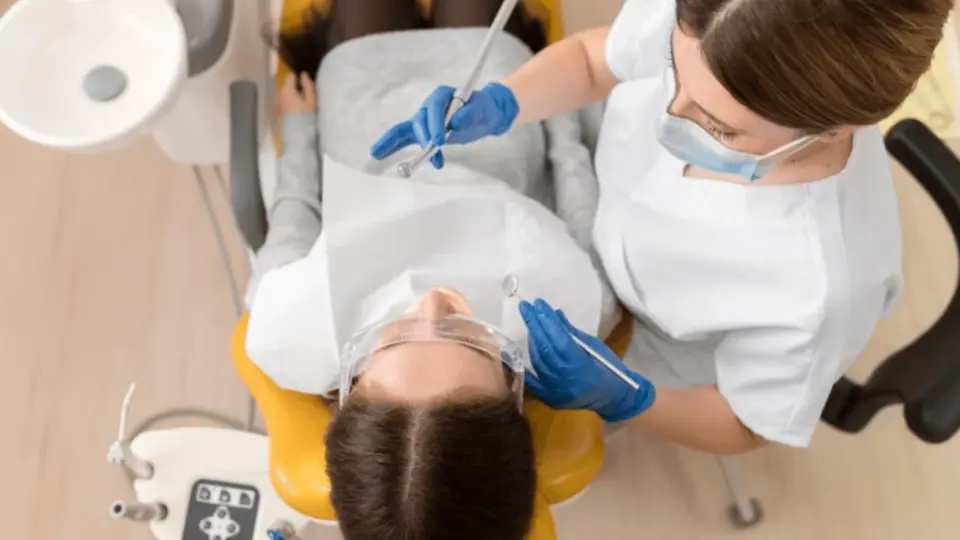Oral Cancer Awareness: Screening Importance

Oral cancer represents a significant global health burden, with detrimental impacts on the quality of life of those affected. Regular screening is crucial in early detection and successful treatment of this disease. If oral cancer is detected early, the likelihood of successful treatment increases dramatically, improving survival rates and reducing treatment-related morbidity.
A simple, quick oral examination can detect early signs of this disease, including red or white patches, sores that do not heal, and lumps or hard spots in the mouth. Notably, these symptoms may not cause pain or discomfort in the early stages, underscoring the importance of regular screenings. Hence, make oral cancer screenings a priority in your routine healthcare agenda.
Why is oral cancer screening considered important for early detection and prevention?
Oral cancer screening is considered crucial for early detection and prevention due to its potential to save lives and improve the prognosis of individuals at risk. Oral cancer often develops without noticeable symptoms in its initial stages, making early detection through screening vital.
Early detection can lead to more effective therapies, a greater success rate, and fewer aggressive and invasive procedures. It can also boost life satisfaction. for patients by minimizing the extent of surgery and potential disfigurement.
Furthermore, certain risk factors, such as tobacco and alcohol use, as well as the presence of human papillomavirus (HPV), increase the likelihood of developing oral cancer. Regular screenings can identify these risk factors and provide an opportunity for individuals to v consumption, which can significantly lower their risk of developing oral cancer.
In summary, oral cancer screening is vital because it empowers individuals and healthcare providers to detect potential issues early, allowing for prompt intervention, less invasive treatments, and improved outcomes, ultimately saving lives and enhancing oral health.
What are the common risk factors associated with oral cancer, and how do they influence the importance of regular screenings?
Several common risk factors are associated with oral cancer, and they underscore the importance of regular screenings for early detection and prevention:
- Tobacco Use: Smoking cigarettes, cigars, or pipes and using smokeless tobacco products significantly increase the risk of oral cancer. Patients need regular screenings of their history of tobacco use, as early discovery allows timely action and improved outcomes.
- Alcohol Consumption: Drinking heavily and often is a known risk factor for oral cancer. When used with tobacco, risk increases. Regular screenings are crucial for individuals who consume alcohol excessively, as early detection can be life-saving.
- Human Papillomavirus (HPV) Infection: Certain HPV strains, especially HPV-16, have been linked to an increased risk of oral cancer. Regular screenings are important for individuals who may have been exposed to HPV through sexual activity or other means.
- Age: The risk of oral cancer increases with age, particularly after the age of 45. Regular screenings become increasingly important as individuals grow older to detect any abnormalities or precancerous lesions.
- Gender: Men are at a higher risk of developing oral cancer than women. Regular screenings are particularly important for adult men, given their increased vulnerability.
- Sun Exposure: Excessive sun exposure can increase the risk of lip cancer. Individuals who spend significant time outdoors, especially in sunny climates, should consider regular screenings, focusing on the lips and the surrounding area.
- Poor Diet: A diet low in fruits and vegetables and lacking essential nutrients may contribute to the development of oral cancer. Regular screenings can identify potential issues early and prompt individuals to improve their diet.
- Family History: A family history of oral cancer can increase an individual’s risk. Regular screenings may be recommended for those with a family history to monitor for early signs of the disease.
Regular screenings are essential because they can detect precancerous lesions or early-stage oral cancer when treatment is most effective. They offer timely intervention, potentially reducing the need for extensive surgeries or aggressive treatments, improving overall survival rates, and enhancing oral health.
What are the specific signs and symptoms that prompt individuals to seek oral cancer screenings?
Individuals should be vigilant about certain signs and symptoms that may prompt them to seek oral cancer screenings:
- Persistent Mouth Sores: Ulcers or sores that don’t heal within two weeks can cause concern. These non-healing lesions may appear on the lips, tongue, gums, or inside the cheeks.
- Red or White Patches: Red or white patches on the oral mucosa (the mouth lining) can indicate potential abnormalities. These patches may be painless or sensitive.
- Difficulty Swallowing: Swallowing problems can be a sign of advanced oral cancer. Individuals experiencing persistent difficulty swallowing should seek medical attention.
- Hoarseness or Voice Changes: Unexplained changes in voice quality, such as chronic hoarseness or a persistent sore throat can be seriously associated with oral cancer.
- Persistent Sore Throat: A sore throat that lingers for an extended period, especially without any apparent cause, such as a cold or flu, should be evaluated.
- Ear Pain: Pain in the ears unrelated to an ear infection or other known condition can sometimes be a sign of oral cancer.
- Unexplained Weight Loss: Undetected weight loss can significantly indicate various health issues, including cancer, and should be investigated.
- Lump or Mass: The discovery of a lump or mass in the mouth or neck area warrants prompt examination, as it can be a sign of oral cancer.
- Numbness or Tingling: Numbness, tingling, or loss of sensation in the mouth, lips, or facial area may be associated with oral cancer and should be assessed.
- Persistent Bad Breath: Chronic halitosis or bad breath that doesn’t improve with oral hygiene measures may raise concerns.
It’s important to note that many various factors can induce these symptoms in non-cancerous conditions. However, a healthcare professional should evaluate any persistent or unexplained changes or discomfort in the oral or throat region. Regular testing and medical attention identified early, if any of these warning signs arise, can greatly improve treatment and recovery outcomes from oral cancer.
How do dental professionals conduct oral cancer screenings, and how often should individuals undergo them?
Dental professionals conduct oral cancer screenings using a systematic and thorough approach. The screening process typically involves the following steps:
- Visual Examination: The dental professional visually inspects the entire oral cavity, including the lips, gums, tongue, inner cheeks, roof of the mouth (palate), floor of the mouth, tonsils, and throat. They look for any abnormalities such as sores, red or white patches, lumps, bumps, or changes in color or texture.
- Palpation: The dental professional may use their gloved hands to gently palpate (touch and feel) the tissues in the mouth and neck. They check for any areas that feel unusual, swollen, or tender.
- Use of Specialized Tools: Some dental professionals use specialized tools, such as a light source and a mirror, to better view hard-to-see areas at the back of the mouth and throat. Others may use dye or special rinses to highlight abnormal tissues.
- Patient History: The dental professional may ask the patient about their medical history, including any risk factors such as tobacco or alcoholism, HPV, or oral cancer in the family.
Oral cancer screening frequency varies between individual risk factors and professional recommendations. However, it is generally recommended that adults have annual oral cancer screenings during their routine dental check-ups.
For individuals with a higher risk of oral cancer, such as tobacco or alcohol users, a history of oral cancer, or potential exposure to HPV, more frequent screenings may be recommended. It’s essential to discuss your specific risk factors and screening schedule with your dentist or oral medical professional to ensure proper treatment early detection if needed. Regular screenings are critical in detecting oral cancer in its early stages when it is most treatable.
Can early detection through oral cancer screenings improve treatment outcomes and overall prognosis?
Early detection through oral cancer screenings can significantly enhance treatment outcomes and overall prognosis. Many kinds of cancer, including oral cancer, are more manageable and potentially curable when identified in its initial stages.
Early detection allows for less aggressive and more targeted treatment options, often resulting in a higher success rate and a better overall quality of life for patients. Surgical removal of smaller tumors is typically less disfiguring and has fewer functional consequences. Additionally, early-stage oral cancer is less likely to spread to local or distant lymph nodes sites, improving the chances of complete remission and long-term survival.
Furthermore, early intervention can reduce the physical, emotional, and financial burdens associated with advanced-stage cancer treatments. Regular oral cancer screenings are a critical component of preventive healthcare, providing individuals with the opportunity for early diagnosis, timely treatment, and improved prognosis, underscoring the importance of these screenings in preserving oral health and well-being.
Take Action Today – Get Screened for Oral Cancer!
Take action today to protect your oral health and well-being by getting screened for oral cancer at Illume Dental of McKinney. Our skilled dentists care for your well-being and offer complete oral cancer screenings for your regular dental check-up.
Early detection helps improve treatment outcomes and ensures peace of mind. Don’t wait until it’s too late – schedule your oral cancer screening with us today.
Your health is our priority, and together, we can take proactive steps to safeguard your smile and your future. Visit Illume Dental of McKinney and prioritize your oral health through regular screenings.



